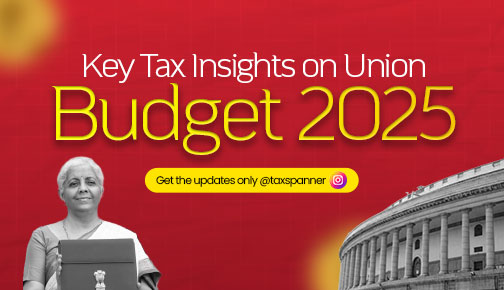Learn the 2024 Union Budget Key Tax Updates for NRIs
The 2024 Union Budget has brought a mixed bag of changes for Non-Resident Indians (NRIs), aimed at streamlining taxation and improving the ease of doing business in India. As over 30 million NRIs spread across the globe navigate these adjustments, understanding the implications of these changes on capital gains and income tax is crucial.
Overview of Key Taxation Changes
What Has Decreased?
Long Term Capital Gains (LTCG) Tax:
- For unlisted equity shares, including startup investments, the LTCG tax has decreased from 20% with indexation to 12.5% without indexation. This is excellent news for NRIs investing in Indian startups.
- Similarly, LTCG tax on the sale of real estate has dropped from 20% with indexation to 12.5% without indexation. Notably, the rollback to the earlier indexation-based calculation does not apply to NRIs.
Tax Deducted at Source (TDS):
- TDS on property sales has been reduced from 20% to 12.5% for long-term holdings, offering significant relief for NRIs, as TDS is typically deducted on the sale value rather than on the gains.
What Has Increased?
Short Term Capital Gains (STCG) Tax:
- The STCG tax for equity has increased from 15% to 20%.
Long Term Capital Gains (LTCG) Tax for Equity:
- The LTCG tax for equity has risen from 10% (with exemption up to Rs. 1 lakh per FY) to 12.5% (with exemption up to Rs. 1.25 lakh per FY).
TDS on Sale of Listed Equity Shares:
- The TDS for NRIs on the sale of listed equity shares and equity mutual fund units has increased from 10% for long-term holdings & 15% for short-term (<12 months) to 12.5% for long-term and 20% for short-term.
What Hasn’t Changed?
- STCG tax for unlisted equity shares, including startups, remains at the applicable slab rate.
- STCG tax on the sale of property stays at the applicable slab rate.
- TDS on rental income remains at 30%, unchanged.
Simplified Tax Rate Structure for NRIs
The 2024 Union Budget introduces a more simple tax slab structure under the New Tax Regime, which may affect NRIs' financial planning strategies:
| Tax Slab for FY 2023-24 | Tax Rate | Tax Slab for FY 2024-25 | Tax Rate | Change |
|---|---|---|---|---|
| Up to Rs. 3 lakh | Nil | Up to Rs. 3 lakh | Nil | No change |
| Rs. 3 lakh – Rs. 6 lakh | 5% | Rs. 3 lakh – Rs. 7 lakh | 5% | Slab threshold increased by Rs. 1 lakh |
| Rs. 6 lakh – Rs. 9 lakh | 10% | Rs. 7 lakh – Rs. 10 lakh | 10% | Slab threshold increased by Rs. 1 lakh |
| Rs. 9 lakh – Rs. 12 lakh | 15% | Rs. 10 lakh – Rs. 12 lakh | 15% | Matched with previous slab |
| Rs. 12 lakh – Rs. 15 lakh | 20% | Rs. 12 lakh – Rs. 15 lakh | 20% | No change |
| > Rs. 15 lakh | 30% | > Rs. 15 lakh | 30% | No change |
Capital Gains Tax: What’s New?
The budget announced a standardized long-term capital gains tax across various asset categories, simplifying tax planning for NRIs:
- Listed financial assets held for more than 1 year will be classified as long-term, and those held for less than 1 year as short-term.
- Unlisted financial assets and non-financial assets will now require a minimum holding period of 2 years to be classified as long-term.
Key Tax Implications for NRIs
The adjustments in TDS rates and capital gains taxation necessitate proactive planning for NRIs:
Short-Term Capital Gains TDS:
- Sale of Listed assets – 20%
- Sale of Equity Mutual Funds – 20%
- Sale of Unlisted stocks – 30%
Long-Term Capital Gains TDS:
- Sale of Listed assets – 12.5%
- Sale of Equity Mutual Funds – 12.5%
- Sale of Unlisted stocks – 12.5%
- Sale of Physical Real Estate – 12.5%
Miscellaneous Changes Beneficial for NRIs
Abolishment of Angel Tax
The removal of Angel Tax across all investor categories will stimulate the startup ecosystem, providing a more favourable investment climate for NRIs.
Taxation of Rental Income
NRIs must now report all rental income as ‘Income from House Property’, eliminating the ability to classify it under ‘Profits and Gains of business or profession.’
What’s Next for NRIs?
With the new tax regime and capital gains taxation changes, NRIs should focus on:
- Goal-Planning: Review financial goals and investment portfolios with a financial advisor.
- Staying Informed: Understand available deductions to minimize tax liabilities.
- Monitoring TDS: Regularly check TDS deposits to make sure compliance and track potential refunds.
- Filing Tax Returns: Correctly file Income Tax Returns to claim any applicable refunds.
In conclusion, understanding the nuances of the 2024 Union Budget is essential for NRIs to make informed financial decisions. By optimizing tax strategies and aligning investments with long-term goals, NRIs can navigate the evolving tax landscape effectively. As tax laws continue to change, building a diversified portfolio that considers these dynamics will help maximize returns while minimizing liabilities.
Explore TaxSpanner's wide range of calculators for your tax planning and calculations!
View Tools & Calculators



